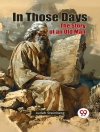In ‘Silanus the Christian, ‘ Edwin Abbott Abbott presents a compelling narrative that intricately weaves themes of faith, morality, and social justice within the context of early Christianity. Set against the backdrop of the Roman Empire, Abbott employs a rich, evocative prose style that reflects the influences of both the Victorian moral framework and classical literature. The novel deftly explores the complexities of belief and the struggles Christians faced during persecutions, offering a poignant commentary on human nature and empathy, inviting readers to engage with profound philosophical inquiries about the nature of truth and redemption. Edwin Abbott Abbott, a renowned educator and theologian, draws on his extensive background in scholarship and Christian thought to craft this work. His experiences in the Church of England, coupled with his interest in social reform, likely informed his depiction of the moral dilemmas faced by his characters. Abbott’s multifaceted pursuits—including his commitment to education and advocacy for social change—imbue the narrative with depth, as he adeptly navigates the intersection of contemporary issues and timeless spiritual questions. This novel is highly recommended for readers interested in the interplay of literature and theology, as well as those seeking a thought-provoking examination of faith under duress. Abbott’s skillful storytelling invites reflection and challenges the reader to contemplate their own beliefs, making ‘Silanus the Christian’ a meaningful addition to both historical fiction and Christian literature.
Об авторе
Edwin Abbott Abbott (20 December 1838 – 12 October 1926) was an English schoolmaster and theologian, most famous for his work in literature and known scholarly prowess. Born in London, Abbott was educated at the City of London School and St John’s College, Cambridge, where he excelled in classics. He eventually became headmaster of the City of London School. A man of diverse interests and deep knowledge, Abbott’s literary style combined his religious commitment and his fascination with social issues and scientific paradigms. His most renowned work is ‘Flatland: A Romance of Many Dimensions’ (1884), a satirical novella that explores the concept of dimensions and has become a classic in speculative fiction. Abbott ventured into theological controversy with his book ‘Silanus the Christian’ (1908), which depicts the spiritual journey of a Roman nobleman. This work reflects Abbott’s adherence to the liberal theological thought that characterizes many of his texts, contributing a subtle exploration of Christian beliefs in alignment with the progressive religious scholarship of his time. His writing reflects a commitment to explore complex theological and philosophical themes through narrative, characterized by his astute critical thinking and comprehensive understanding of Victorian society’s intellectual currents.












